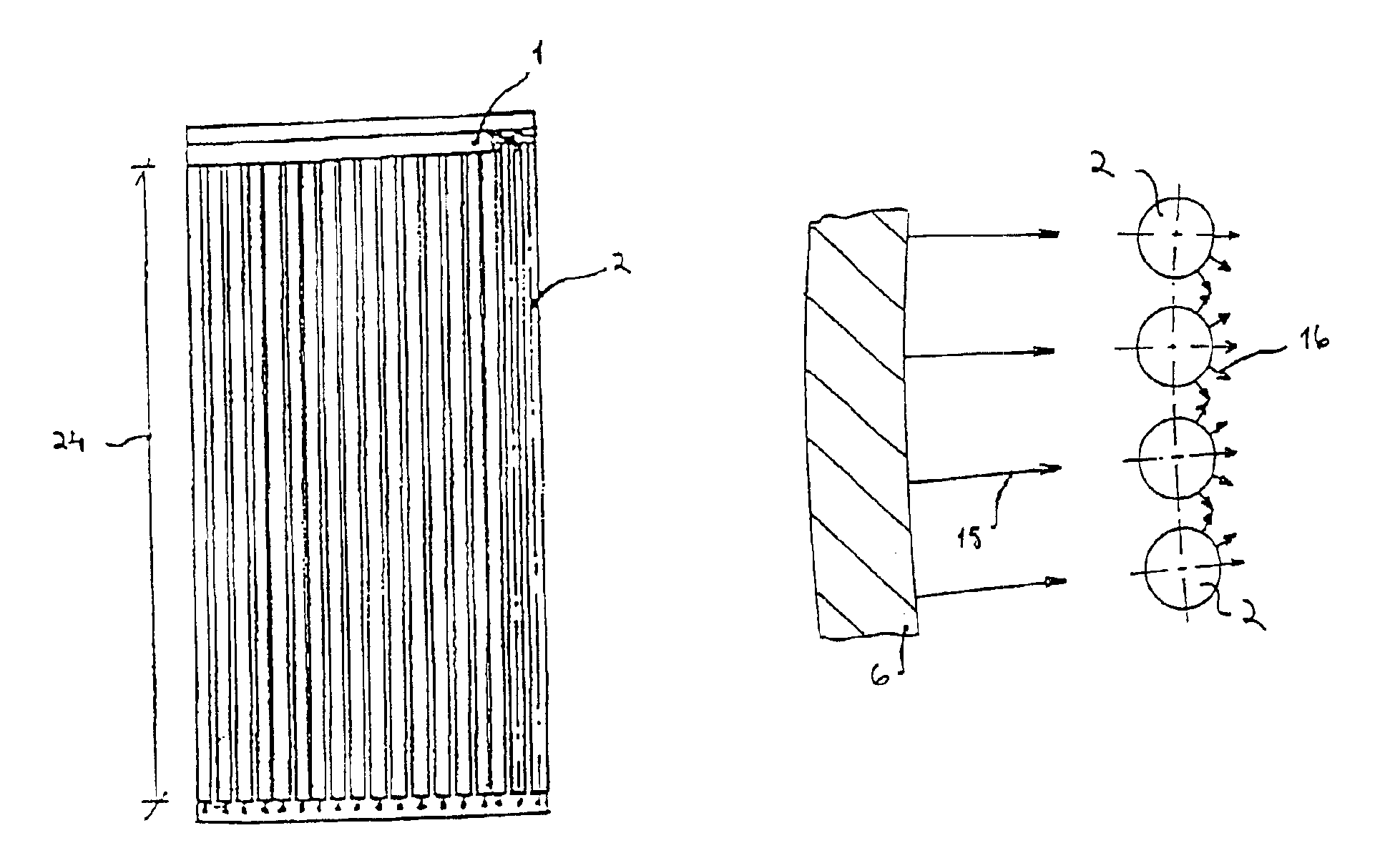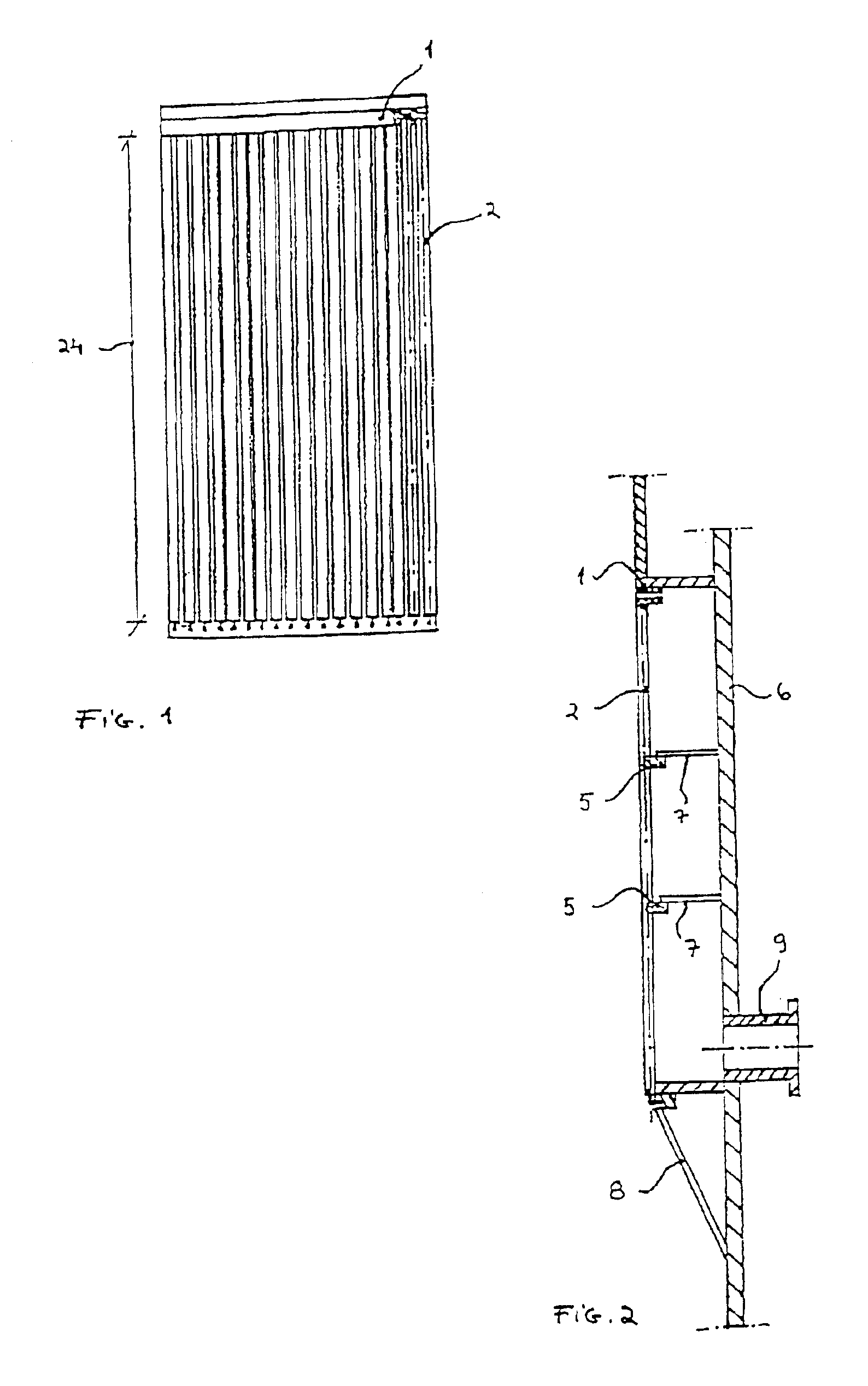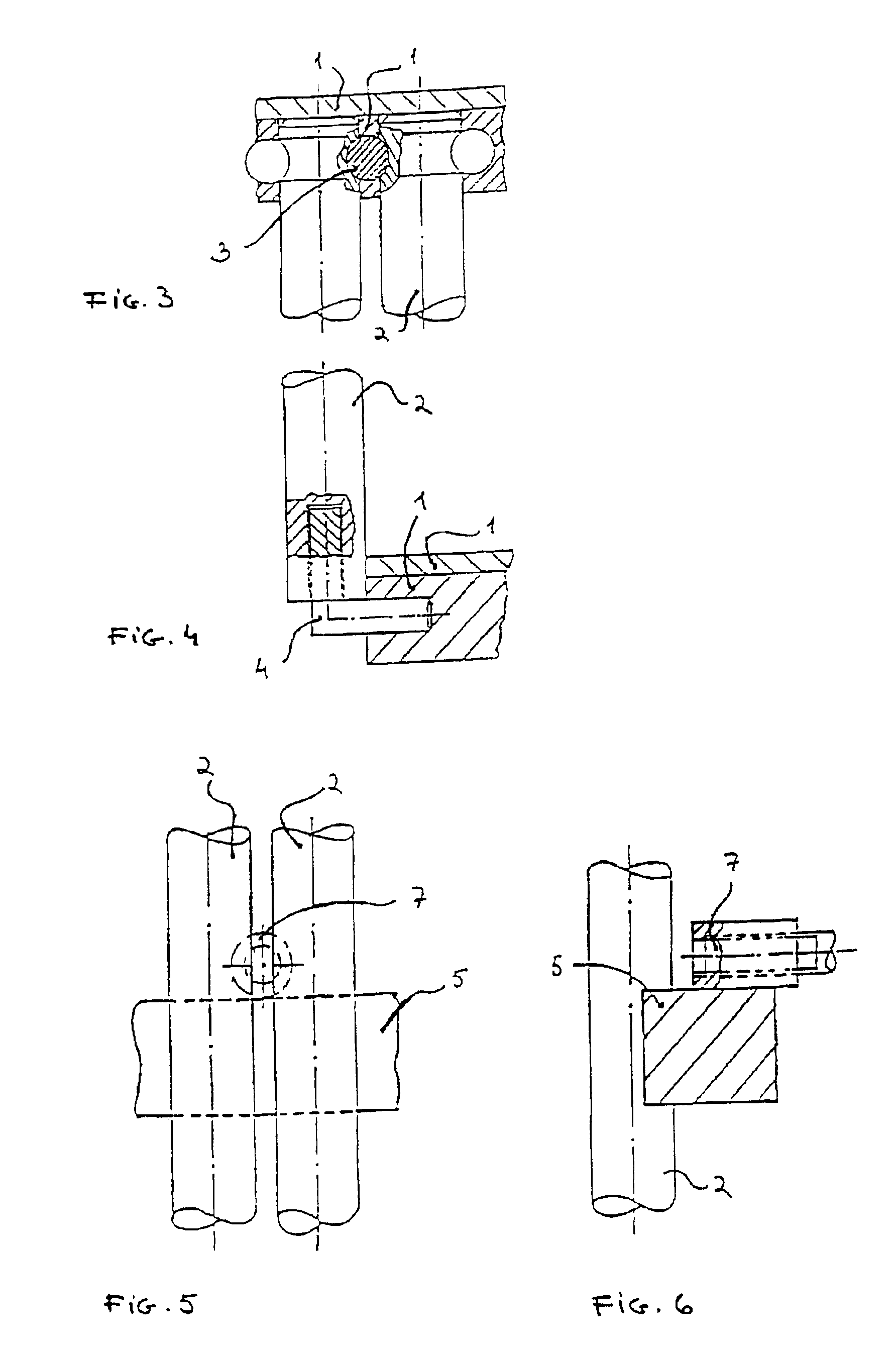Bar screen
a bar screen and bar screen technology, applied in the field of bar screens, can solve the problems of conflicting requirements, increasing production costs and environmental loads, and not always being able to maintain the conditions required for making strong and clean pulp, etc., to achieve the effect of improving continuous cooking and its control, superior hydraulic properties, and high expansion and circulation flows
- Summary
- Abstract
- Description
- Claims
- Application Information
AI Technical Summary
Benefits of technology
Problems solved by technology
Method used
Image
Examples
Embodiment Construction
[0037]A preferred embodiment of the present bar screen is in the following described with reference to the above-mentioned figures. The bar screen comprises structural parts marked with reference numbers in the figures and corresponding to the reference numbers used in this description.
[0038]FIGS. 1 to 6 show a preferred construction of a bar screen to be arranged in a pressure vessel used in making chemical pulp or paper pulp, the bar screen comprising a frame 1 which is arranged to receive an optional number of screen bars 2 which are symmetrical in cross-profile, e.g. round or elliptic. These screen bars are arranged in the frame substantially parallel and side by side. Thus, the screen bars are at one-top-end connected to the frame by a cottered joint 3 as shown in FIG. 3 or by another corresponding method to avoid welding and the damage it causes to the coating, for instance. Correspondingly, the opposing-lower-ends of the screen bars are, for the same reason, arranged to the f...
PUM
 Login to View More
Login to View More Abstract
Description
Claims
Application Information
 Login to View More
Login to View More - R&D
- Intellectual Property
- Life Sciences
- Materials
- Tech Scout
- Unparalleled Data Quality
- Higher Quality Content
- 60% Fewer Hallucinations
Browse by: Latest US Patents, China's latest patents, Technical Efficacy Thesaurus, Application Domain, Technology Topic, Popular Technical Reports.
© 2025 PatSnap. All rights reserved.Legal|Privacy policy|Modern Slavery Act Transparency Statement|Sitemap|About US| Contact US: help@patsnap.com



